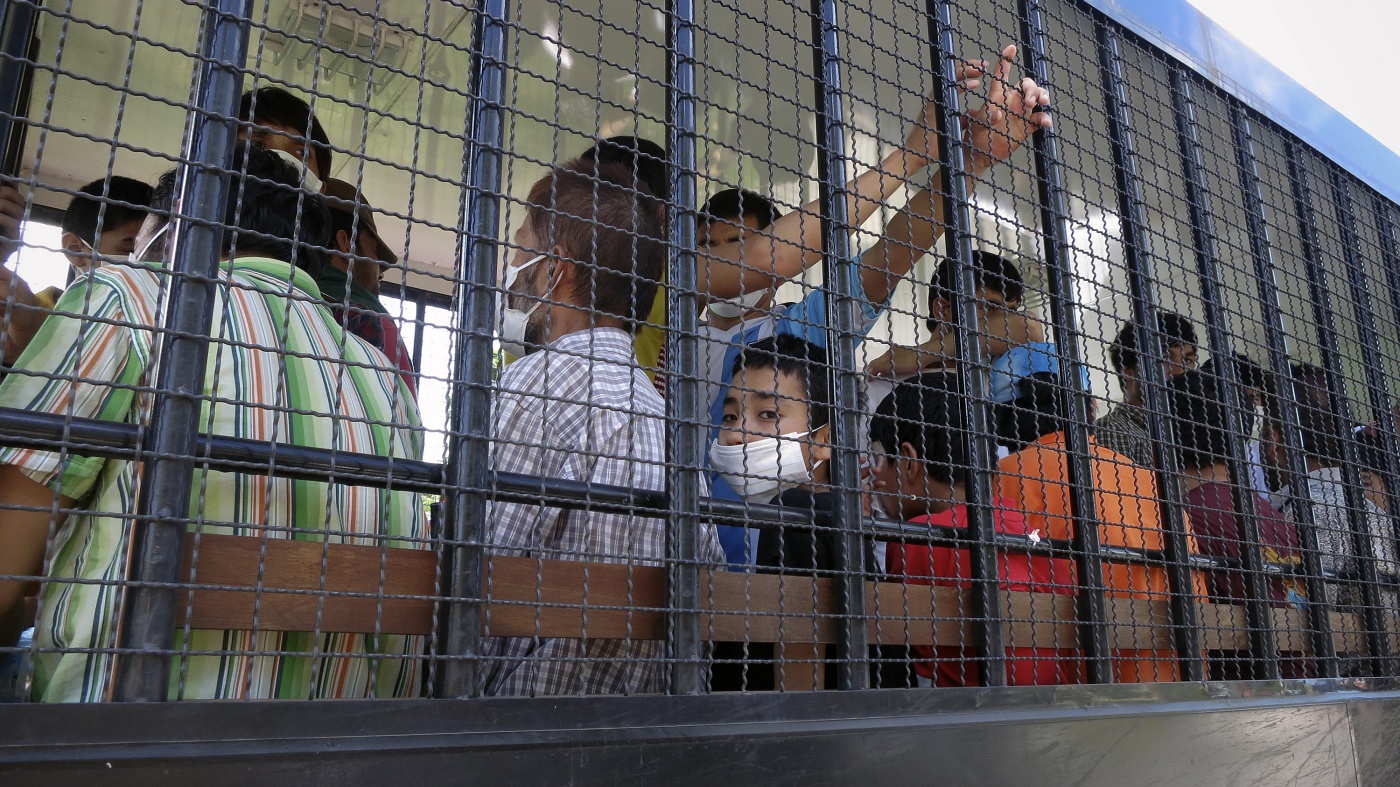Detained Uyghurs in Thailand allegedly forbidden contact with relatives, lawyers and subjected to ‘different standard of care than other detainees’
Dozens of lawmakers across the world sought the intervention of the UN human rights commissioner for refugees to secure the safety of about 48 Uyghur asylum seekers detained in Thailand for a decade.
A New York Times report this weekend revealed that the conditions of the detained Uyghur men, all aged between 25 and 50 years, have been inhumane and incompatible with fundamental human rights.
About 50 lawmakers from 26 parliaments, who are members of the Inter-Parliamentary Alliance on China, have jointly written to Filippo Grandi to prevent the deportation of the Uyghur men to China where it was "highly likely that they would face persecution, imprisonment, or worse".
"We understand that there may be foreign governments willing to resettle this group of Uyghur men," the lawmakers from the UK, Canada, European Parliament, Ukraine, Germany, Taiwan and Switzerland among others, said in the letter to Mr Grandi.
The Inter-Parliamentary Alliance on China is an international, cross-party alliance of parliamentarians from democratic countries that “unites lawmakers worldwide, promoting democracy and addressing threats to the rules-based and human rights systems posed by the rise of China”.
The detained Uyghurs in Thailand are forbidden contact with relatives, lawyers or other advocates and are allegedly subjected to a different standard of care than other detainees, the NYT reported, citing a letter sent to Thailand's prime minister last year by the state-run National Human Rights Commission of Thailand.
In the letter, the commission's chief revealed the existence of “countries that are ready to take these detainees to settle down” and urged the relevant agencies to find a way to facilitate their settlement.
The 48 detainees were part of a much larger group of around 350 Uyghur refugees who fled to Thailand following persecution in the northwest Chinese region of Xinjiang.
At least 172 women and children have since been sent to Turkey and 109 were forcibly returned to China, whose wearabout were unknown to the rights groups.
Two children were among the five detainees who have died in Thailand's custody. Last year Human Rights Watch reported that two of the refugees in their 40s died while in immigration detention and called on the Thai government to end the "indefinite detention" of the asylum seekers.
The Chinese government under president Xi Jinping has been accused of notoriously prosecuting Uyghurs and Hui Muslims over the past decade through alleged widespread abuses and arbitrary detentions. Beijing has routinely denied allegations of “crimes against humanity”, calling them the “lie of the century”.
In October, China accused Australia of “hypocrisy” and “systemic racism” after Beijing was confronted at the UN over alleged abuses in Xinjiang and Tibet. Australia, the US and the UK were among 15 countries that issued a joint statement at the UN on 22 October against the alleged human rights abuses in Xinjiang and Tibet.
The UN says China has detained more than a million minority Muslims, mostly ethnic Uyghurs, since a dramatic escalation of counter-terrorism policies in the spring of 2017. China initially denied the existence of any Uyghur detention centres before defending them as “re-education centres”.
The Chinese government under president Xi Jinping has been accused of notoriously prosecuting Uyghurs and Hui Muslims over the past decade through alleged widespread abuses and arbitrary detentions. Beijing has routinely denied allegations of “crimes against humanity”, calling them the “lie of the century”.
In October, China accused Australia of “hypocrisy” and “systemic racism” after Beijing was confronted at the UN over alleged abuses in Xinjiang and Tibet. Australia, the US and the UK were among 15 countries that issued a joint statement at the UN on 22 October against the alleged human rights abuses in Xinjiang and Tibet.
The UN says China has detained more than a million minority Muslims, mostly ethnic Uyghurs, since a dramatic escalation of counter-terrorism policies in the spring of 2017. China initially denied the existence of any Uyghur detention centres before defending them as “re-education centres”.
In February this year, UN experts, including five special rapporteurs and two working groups, raised concerns in relation to the Uyghur detainee’s poor detention conditions, lack of access to their families, lawyers and to adequate healthcare, the lawmakers said. "Despite this, the men are still interned in inhumane conditions."
Thailand is not a party to the 1951 UN Refugee Convention, which leaves asylum seekers vulnerable to arrest and detention as “illegal migrants”.

